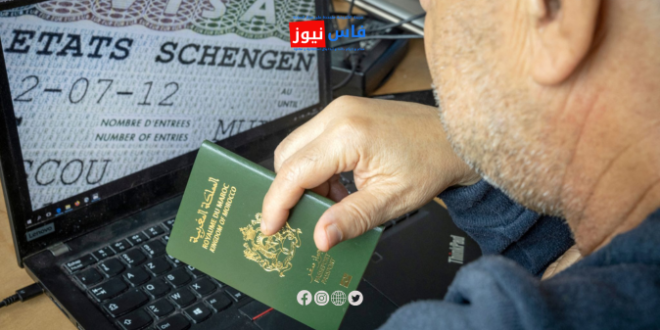The French visa policy towards the Maghreb has shown its limitations. In light of this failure, President Emmanuel Macron aims to change direction.
Macron acknowledged the shortcomings of the French visa policy towards Morocco and Algeria, stating that it has led to a decrease in the issuance of residence visas in France and “has damaged our reputation and image without significantly improving our effectiveness.” He emphasized that this does not mean moving towards laxity, but rather establishing a rigorous policy that allows for intelligent conditioning and simplification of the visa process.
A report by Paul Hermelin, submitted to the Ministers of Interior and Foreign Affairs in April 2023, had already established this failure, revealing an increase in the refusal rate from 10.7% in 2010 to approximately 17% in 2023. French authorities opted for a tightening of the policy to enhance control over migration flows, security, and effectively combat irregular immigration and visa trafficking. Unfortunately, this measure did not yield the expected results.
Moreover, the tightening of visa policies has created more problems than it solved. It has led to tensions in relations with countries like Morocco and Algeria, reduced economic and cultural exchanges, and fostered the emergence of intermediary networks. Additionally, a reduction in staff at French consulates has resulted in longer processing times for visa applications, with applicants sometimes waiting up to ten weeks just to secure an appointment.
In response to the growing phenomenon of intermediaries in countries with high migratory pressure—where obtaining a visa is a significant issue—the Hermelin report recommends adopting an “appointment allocation” system to “secure the process.” The document also notes an anomaly: 120 partnership agreements aimed at facilitating visa issuance have been signed with Algeria but none with Morocco. To change this situation, it advocates for restructuring the network and increasing consulate personnel.
While calling for enhanced controls, the report urges a balance among three objectives: security, migration management, and attractiveness, with a view to facilitating entry for “target groups” (talents, entrepreneurs…). Furthermore, France plans to implement an e-Schengen visa by 2026. This reform will eliminate the need for consulate appointments and visa stickers; ultimately reducing fraud while enhancing security and achieving time and cost savings.
 فاس نيوز ميديا جريدة الكترونية جهوية تعنى بشؤون و أخبار جهة فاس مكناس – متجددة على مدار الساعة
فاس نيوز ميديا جريدة الكترونية جهوية تعنى بشؤون و أخبار جهة فاس مكناس – متجددة على مدار الساعة













